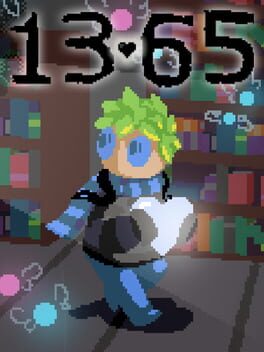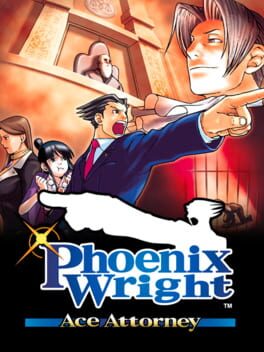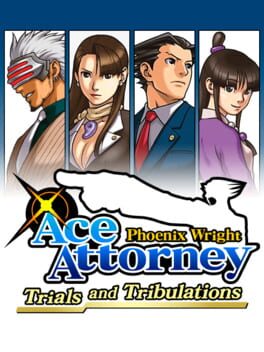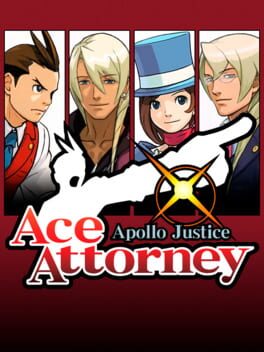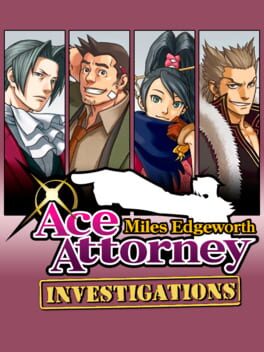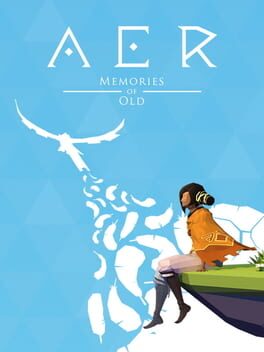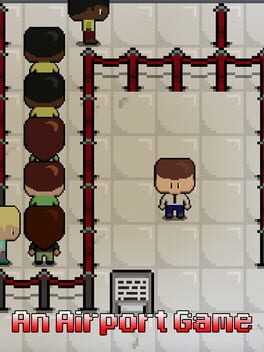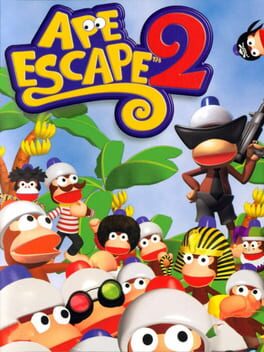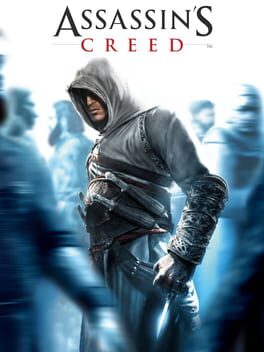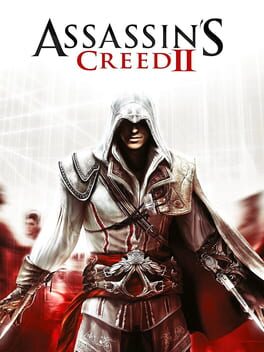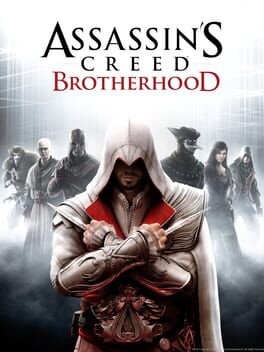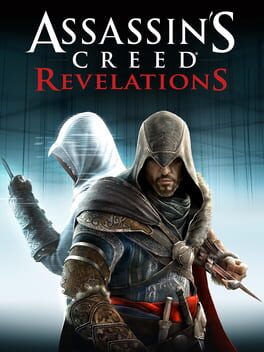EuphoriaGremlin
2019
2016
A fantastic visual novel / adventure hybrid. We play as Phoenix, a hapless defense lawyer in a brutal system that gives him 3 days to prove his client's innocence. Gameplay is split between point-and-click Investigation phases where Phoenix visits a crime scene to find evidence, and the hectic trial sequences where players cross-examine witnesses and prise apart the faults in their testimony. Features excellent writing, particularly between Phoenix and his prosecutor rival, the aloof (but secretly good) Miles Edgeworth.
We step back into the shoes of Phoenix Wright, a bumbling defense lawyer who must prove his client's innocence in a grim 3-day system. His counterpart this time is the mean Franziska von Karma, who provides a less enjoyable opposition than the missing Miles Edgeworth. Fundamentally more of the same as the first Ace Attorney, with the same point-and-click Investigation and Trial phases, but this time during Investigation Phoenix can call upon spiritual powers to view people's Psycho-Locks, which he must then break using evidence to force them to give up their full testimonies to him. While it retains the same general high quality as the first game, the main mark against this sequel is the fact that the writing is less clean than the first game, and cases begin to drag on terribly long; it's no exaggeration to say that some of the cases in this game are amongst the worst in the trilogy.
We return once again to the role of Phoenix Wright for the conclusion of this trilogy. Where Justice For All floundered due to poor writing and some tedious cases, Trials and Tribulations is a masterful return to form. Trials and Tribulations features a wonderful through-line that uses flashbacks to Phoenix and Miles' earliest days as lawyers, and is heavily connected to characters like the now long-dead Mia Fey; the end result is a lengthy and twisting plotline that ties together across both past and present. Our main opponent across the stand is Godot, an effortlessly cool antagonist, but the real star here is the writing, which stands head and shoulders above either of the other 2 entries.
Beginning a new story when the previous games formed an iconic and beloved narrative is a tough order, and unfortunately Apollo Justice doesn't quite do, well, justice to its namesake. Our central character here is Apollo, a new defense lawyer; he's not as lovably bumbling as Phoenix, so he cuts a dull character, and the other key members of the case fail to live up to the bar set by Miles or Maya Fey. A key mechanic here is that Apollo can sense "tells" in people giving testimony, so you have to watch out for random movements and press when you see them, but it's a lot more annoying than it sounds. While the overall quality of the game is still high, it's impossible to avoid the fact that the cases are overlong and overwrought.
It sounds odd that a spinoff to the Ace Attorney games would ditch the iconic Trial sequences that the series is famous for but Investigations does just that. It is instead a more traditional point-and-click adventure game that follows series mainstay prosectuor Miles Edgeworth as he finds himself chasing a huge criminal conspiracy that threatens international security. It's fun getting to see Miles be the hero for once, and you get the sense that he's enjoying it too! While the game is perhaps a little overwritten and that can lead some chapters to drag on a touch, this remains an exciting and engaging diversion for the franchise.
2017
A gentle walking (flying?) sim. We play as Auk, a shapeshifter who can take a bird form, who lives in a world of shattered, floating islands. She undertakes a pilgrimage across the sky to find ancient temples in order to find a way of pushing back an encroaching dark force. Most of the gameplay is wrapped up in flying around and enjoying the sights, with some extremely light puzzle solving in the temples themselves. Lovely low-poly visuals and great aesthetic design are the main draws here as the narrative is very understated and the gameplay has no real challenges to speak of.
2019
A quirky interactive narrative. Your character arrives at an airport with only an hour to go before their flight and must do everything they can to not miss their plane, but everything seems to be conspiring against you. Does a great job of creating tension with every decision you make costing you time; you're always given the choice to be nice to the people you meet, but doing so cuts the time you have thinner and thinner!
2020
A queer, sad visual novel that explores the developer's experience with a relationship, and the way it ended through the COVID pandemic. Features truly beautiful pastel style artwork, and I love the way it's not just presented as a running stream of text boxes but uses more engaging, diegetic ways to advance the narrative, such as a section conducted through phone texts and emojis. Asks a lot of its audience, emotionally, but worth the heartache.
2002
There's a bunch of super-intelligent apes, and they've escaped! (Again!) One of the classics of 3D platforming from the early aughts, Ape Escape 2 sees the young boy Hikaru tasked with tracking down and capturing a bunch of runaway simians from a bevy of colourful themed platformer worlds. You get a large variety of gadgets with which to acheive this goal, most of which come down to a variation of "hit ape to stun". Unfortunately the game has a few hang-ups, mainly the utterly dreadful voice acting and the wonky controls that make actually playing the game an occasional chore.
2007
Right from the off the Assassin's Creed story is split in two. In the present day we are Desmond, a bartender from New York, who is captured by the sinister corporation Abstergo and forced inside the Animus in order to relive the memories of his ancestor, an Assassin locked in a clandestine war with the evil Templars.
In the past we are Altair, a Master Assassin during the Crusades at the end of the 12th century who is tasked with taking out key members of the Templars (and learning to be less of a grump along the way). To do this we get to free-run around a large, multi-city open world and engage in social stealth (i.e. hiding on benches). This first entry is innovative and cool, but everything is half-baked. The free-running is dodgy, the combat is very slow, and the stealth is too presecriptive in how and when you can hide. Still, the seeds of a remarkable and exciting idea are there, just not yet fully grown.
In the past we are Altair, a Master Assassin during the Crusades at the end of the 12th century who is tasked with taking out key members of the Templars (and learning to be less of a grump along the way). To do this we get to free-run around a large, multi-city open world and engage in social stealth (i.e. hiding on benches). This first entry is innovative and cool, but everything is half-baked. The free-running is dodgy, the combat is very slow, and the stealth is too presecriptive in how and when you can hide. Still, the seeds of a remarkable and exciting idea are there, just not yet fully grown.
2009
A fantastic sequel that improves on almost everything from the first game. The present day sections with Desmond are still dull, but the new Renaissance Italy setting and main character, Florentine playboy Ezio Auditore, are a huge leap forward from Altair's grim face and the bleak landscape of the 12th century Holy Land. Ezio's story is much more engaging than Altair's, a multi-year tale of revenge as he tracks down the Templar conspirators that murdered his father. The open world has far more stuff to do than the first game as well, with a smattering of side-content to do, although none of it is more fleshed out than races or the odd assassination contract. The combat is also still sluggish, although it's at least more forgiving than the first time around. Still, huge leaps forward in terms of writing, characterization, and world-creation!
While obviously a "tiding-over" sequel created to fulfill Ubisoft's ridiculous once-per-year requirements for the franchise, Brotherhood manages to actually be a really good game. Ezio, now older and grumpier, travels to Rome in order to entirely unseat the Borgia after his home is attacked, and along the way has to rebuild the entire Assassin Brotherhood. The story is a little bit messy as some chapters meander around, but the gameplay has had a ton of small but significant lifts. The combat is now faster thanks to a chain-kill mechanic that lets Ezio now through entire groups, and the town renovation mechanic in II has been expanded to an entire city renovation. The best parts of the game are the Borgia guard towers, which all enable free-form assassination missions in order to remove the local captain and free the area up from the family's control.
A significant downstep from Brotherhood. Yet another holding pattern release, this time featuring an aged and cantankerous Ezio who heads to Constantinople to find some keys to a library that Altair sealed. The gameplay is largely the same as in Brotherhood, but now you get penalised for engaging with the city renovation, which begs the question of why you should bother. Parts of the game put you in control of Altair and Desmond for flashbacks; the Altair sequences are neat vignettes of the later stages of his life but the Desmond ones are awful first-person puzzle platforming trials that suck the life and soul out of me.
